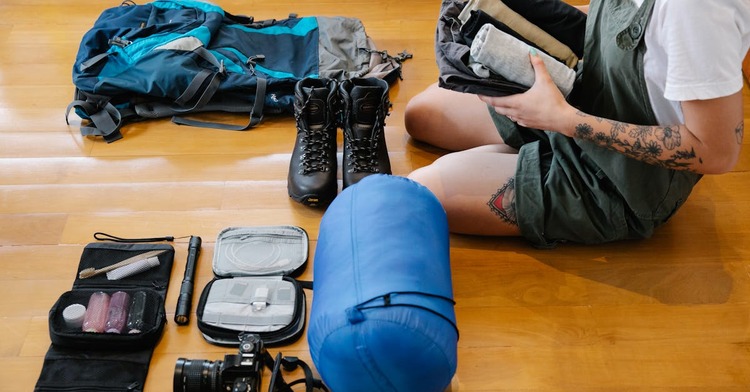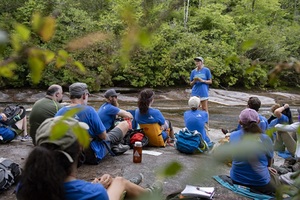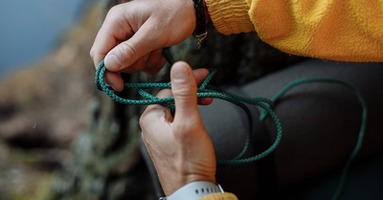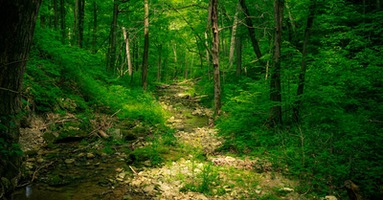
Outdoor Gear Care and Maintenance: Extending the Lifespan of Your Equipment
Investing in quality outdoor gear is essential for adventurers, but ensuring your equipment lasts for years requires proper care and maintenance. From backpacks to tents, hiking boots to sleeping bags, regularly maintaining your gear not only protects your investment but also ensures it performs reliably when you’re out in the wilderness. Here's a guide to keeping your outdoor equipment in peak condition.
General Gear Maintenance Tips
- Clean Regularly: Dirt, grime, and sweat can degrade fabrics and materials over time. Clean gear after every trip.
- Store Properly: Avoid tossing gear into damp basements or hot attics. Store items in a cool, dry space, away from direct sunlight.
- Inspect for Damage: Check zippers, seams, straps, and buckles for wear and tear before and after each use.
- Use It as Intended: Overloading backpacks, misusing trekking poles, or improperly pitching tents can cause unnecessary damage.
How to Care for Specific Outdoor Gear
1. Backpacks
- Cleaning: Spot clean with mild soap and water. For deeper cleaning, rinse in a tub and air-dry completely.
- Maintenance: Check buckles and zippers for damage. Lubricate zippers to prevent snagging.
- Storage: Store in a dry, cool place with straps loosened to prevent stress on the fabric.
2. Tents
- Cleaning: After trips, shake out dirt and debris. Spot clean with water and mild soap. Allow the tent to air dry completely to avoid mold.
- Repairs: Patch small holes with a tent repair kit and reapply seam sealant annually to maintain waterproofing.
- Storage: Avoid leaving your tent packed for long periods. Store it loosely in a breathable bag.
3. Sleeping Bags
- Cleaning: Wash sleeping bags in a front-loading washing machine with a mild detergent or use a professional cleaner for down bags.
- Drying: Air-dry or tumble-dry on low heat with tennis balls to fluff insulation.
- Storage: Never compress sleeping bags for long-term storage. Hang or store them in large, breathable sacks.
4. Hiking Boots
- Cleaning: Remove dirt with a soft brush and water. Avoid using harsh chemicals that can damage leather or synthetic materials.
- Waterproofing: Reapply waterproof treatments as needed to maintain weather resistance.
- Storage: Store in a cool, dry place, and use shoe trees to maintain shape.
5. Clothing and Layers
- Washing: Use mild detergent and avoid fabric softeners, which can damage waterproof coatings. Wash technical fabrics in cold water and air-dry or tumble-dry on low.
- Repairs: Patch holes in jackets or pants with fabric repair tape. Reapply durable water repellent (DWR) coatings periodically.
- Storage: Fold or hang garments properly to prevent creases and maintain insulation.
6. Camping Stoves
- Cleaning: Wipe down after each use to remove food residue and prevent corrosion.
- Maintenance: Check fuel lines, seals, and burners regularly for leaks or clogs.
- Storage: Store stoves in a dry area and ensure fuel canisters are detached and sealed properly.
7. Water Filters and Hydration Systems
- Cleaning: Flush water filters with clean water after each use and let them air-dry thoroughly. Clean hydration reservoirs with warm water, mild soap, and a brush.
- Storage: Store filters in a dry, cool place and hydration bladders in a freezer to prevent mold growth.
8. Trekking Poles
- Cleaning: Wipe down poles with a damp cloth and inspect for dirt in locking mechanisms.
- Repairs: Replace worn-out rubber tips and tighten locking systems as needed.
- Storage: Collapse poles to a manageable length and store in a dry location.
Seasonal Maintenance Tips
- Spring: Inspect all gear before the season begins. Reapply waterproof treatments and wash items that have been stored.
- Summer: Clean gear after every trip, as dust and sweat are more common in hot weather.
- Fall: Dry and clean gear after use, especially tents and sleeping bags, as moisture can lead to mildew.
- Winter: Ensure insulation layers and waterproof coatings are intact. Store gear properly to avoid freezing damage.
Extending Gear Lifespan
- Repair, Don’t Replace: Small holes, broken zippers, or minor tears can often be fixed with repair kits or professional services.
- Use Liners and Covers: Protect gear like sleeping bags and backpacks with liners to reduce direct wear and tear.
- Rotate Usage: If you have multiple sets of gear, rotate them to distribute wear evenly.
- Follow Manufacturer Guidelines: Adhere to cleaning and maintenance instructions provided by gear manufacturers for optimal care.
Eco-Friendly Gear Care
Taking care of your gear isn’t just about saving money—it’s also about sustainability. Extending the lifespan of your equipment reduces waste and minimizes your environmental footprint. Opt for repairable gear, use eco-friendly cleaning products, and dispose of old gear responsibly by recycling or donating.
Conclusion
Outdoor gear is an investment in your adventures, and proper care ensures it performs well for years to come. By adopting regular maintenance habits and repairing rather than replacing equipment, you’ll save money, reduce waste, and enjoy reliable gear on every trip.
Ready to gear up for your next adventure? Visit www.outdooradventures.pro for more tips, gear recommendations, and maintenance guides.

.png)

-(2).png)


.png)


.png)





-(1140-×-106-px).png)
.jpg)
Leave Comment Below